Recently, the news that Google is going to return to the Chinese market has spread in circles. Even the overseas edition of the official media People’s Daily has tweeted that “Google is welcome to return to mainland China, but it must comply with Chinese laws and regulations.†As the founder of Google's domestic search engine and AI technology giant Baidu, Robin Li also took the time to catch up with a wave of hot spots, and released a rhetoric that Baidu has the strength and confidence to compete with Google again and win again.
It is true that Baidu today is no longer the Baidu of eight years ago, and Google is no longer the Google of the past. The competition between the "Warring States two heroes" on the Internet has already burned from the field of search engines to the AI ​​battlefield. Although it is unclear whether Google will return to the Chinese market in a high-profile manner, it is undeniable that Google is now sneaking into the Chinese market in various other ways. In the face of Google, which occupies absolute global hegemony in the AI ​​field, can Baidu's "AI Army" really stand it?
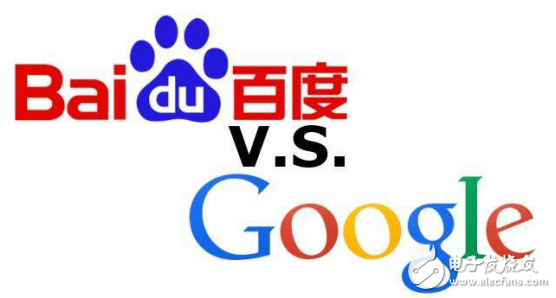
Of course, Google desperately wants to come to China, the main reason is the pressure and anxiety of its own development. One topic that cannot be bypassed is that it has encountered anti-monopoly investigations in many regional markets such as the European Union. Although the huge fines cannot be said to have caused heavy financial pressure, it is quite difficult to continue the path of the past, and this is precisely the Google business. The crisis reflects the model. On the other hand, with the rapid rise of China’s domestic artificial intelligence applications and markets, the world’s major technology giants, including Apple, Amazon, and Microsoft, are also gradually increasing the layout of China’s AI market. Google can’t just watch a piece of “fat meatâ€. Taken away by competitors. Therefore, even though it has been away from the Chinese market for eight or nine years, Google’s idea of ​​“returning to China†has never changed. If it cannot return to China in a high-profile manner, Google is willing to adopt more “opportunistic†methods. The most typical examples of penetration of the Chinese market are investment and cooperation.
In terms of investment in Chinese AI companies, Google has made frequent moves in recent years. As early as October 2015, Google invested in a domestic AI startup company valued at 300 million US dollars to go out and ask questions. The investment amount reached 75 million US dollars. The company is mainly engaged in artificial intelligence voice interaction technology and services and other related businesses, which can be extended To application scenarios such as in-vehicle, wearable and robot interaction. It is worth mentioning that in May of this year, Qiaowen also officially released its first mass-produced AI voice chip "Wenxin" Mobvoi A1. According to industry insiders, Google AI's technology blessing was included; in January this year, Google and Tencent also jointly participated in the domestic Jingtai Technology’s US$15 million round of financing to deploy AI medical applications; in addition, Google invested US$550 million in JD.com on the occasion of 618 this year. It can be said that the company has been in China in recent years. The biggest investment in investment is mainly focused on JD's large-scale deployment in AI logistics and AI product recommendation and many other artificial intelligence technology applications.
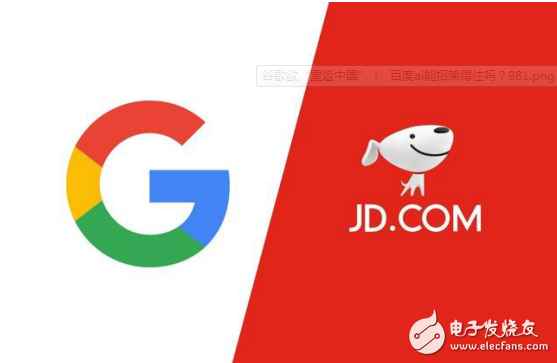
On the other hand, Google has also established a revolutionary base for the "return to China" strategy, and has successively carried out in-depth cooperation with many domestic AI manufacturers. In December last year, Google established an AI China R&D center in Beijing. Li Feifei, the chief scientist of Google’s AI, said that he would cooperate with China’s local AI R&D forces to work together on research in the field of artificial intelligence. Recently, Google is also working with Tencent, Inspur and Other Chinese companies cooperate in the field of AI cloud services, strengthen Google's layout in China's local AI big data and cloud computing market, and provide services such as Google Drive and Google Docs to China. This will undoubtedly help Google collect Chinese local AI clouds on a large scale. Data has laid a solid foundation. In the future, data may be gradually imported into Google's various AI technologies and products to fully empower Google's AI product line.
Following Google's "multi-line" layout, Baidu AI has developed rapidlyIndeed, in the implementation of AI technology, Baidu's achievements in recent years are obvious to all. On April 19, 2017, Baidu officially announced the Apollo plan to open up the code and capabilities of environmental perception, path planning, vehicle control, on-board operating system and other functions to global autonomous driving technology manufacturers, and provide complete development and testing tools. Fully lower the threshold for research and development of autonomous vehicles. Today, the Apollo platform has been updated to version 3.0, with more than 220,000 lines of code open, and more than 10,000 developers recommended the use of Apollo's open code, realizing mass production in the true sense. At present, Baidu's Apollo Ecological Alliance has 119 partners, including Bosch, the German Big Three, and Daimler and other top global automakers and Tier 1 manufacturers.
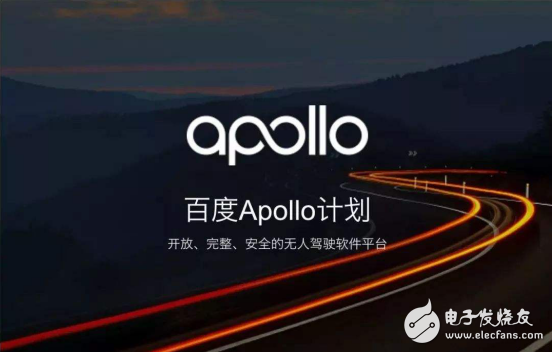
On the other hand, in the field of AI intelligent voice interaction, Baidu also released the DureOS open platform in July last year, including the open platform for smart devices and the open platform for skills, which greatly reduced the application threshold of intelligent voice dialogue technology in major industries. . According to the latest data, there are currently more than 200 ecological partners of DuerOS, the number of smart devices equipped with DuerOS has exceeded 90 million in May, the number of monthly active devices has exceeded 25 million, and its voice wake-up rate in June has exceeded 4 Billion times.
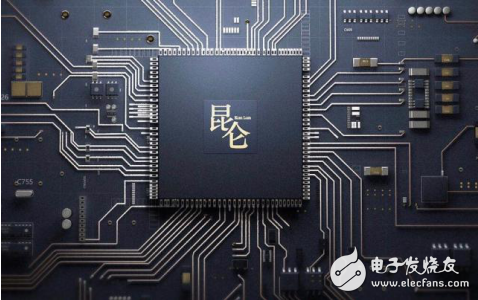
In addition, Baidu has also declined in the field of AI chips, which has been hot in recent years. On July 4 this year, at the second Baidu AI Developer Conference, Baidu announced its first cloud full-featured chip "Kunlun", which includes the training chip Kunlun 818-300 and the inference chip Kunlun 818-100. According to Baidu, the chip can efficiently meet the needs of training and inference at the same time. In addition to cloud requirements such as commonly used deep learning algorithms, it can also be adapted to specific terminal scenarios such as natural language processing, large-scale speech recognition, autonomous driving, and large-scale recommendation. For computing requirements, the computing power can reach 100+ watts to provide 260Tops of computing performance, and the cost is reduced by 10 times under the same performance, which fully meets the needs of AI applications.
Multiple hardware production lines directly competing with Baidu AI may be difficult to parryBut in fact, whether it is in the field of autonomous driving, voice interaction platform or AI chip technology, if you want to really "compete" with Google, Baidu is still a little bit "tender". First of all, in the field of autonomous driving, Google is a well-deserved "Wulin Supreme". Its Waymo has been deeply involved in the field of autonomous driving for eight or nine years, and the core lidar has also been self-developed and self-produced. To date, the total test mileage of the Waymo fleet has exceeded 12.87 million kilometers, and the autonomous driving level of the vehicle has broken through the true L4 level. At present, there are thousands of Chrysler Pacifica unmanned vehicles and thousands of unknown autonomous vehicles. Minivans have achieved large-scale operations throughout the United States, and the Pacifica fleet will be expanded to about 62,000 units in the future. This is a world of difference from Baidu's testing level of only a few hundred units off the assembly line and small-scale fleet. .
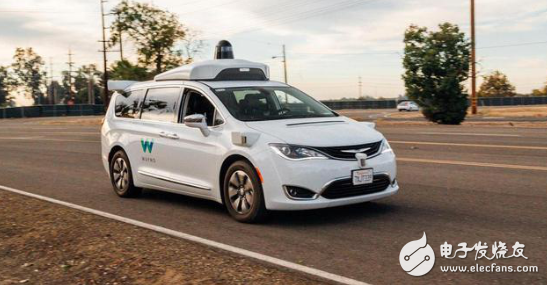
Secondly, Google has actually been on the road of voice assistants for a long time. The earliest Google Now appeared in front of people as the initial form of Google’s voice assistant. Google Now first appeared on Android 4.1 and Nexus phones in 2012, and then launched the "Now On Tap" service for rapid information retrieval of mobile devices and "Now cards". After 2016, Google Assistant began to gradually replace Google Now, the corresponding functions were also replaced, "Now cards" was replaced by "Feed", "Now on Tap" was replaced by "Screen Search", and it has been updated for several generations. . In the same year, Google Home also came out. Together with Google Assistant, relying on the huge user level of Google products, it began to develop rapidly, and realized in Pixel series mobile phones, Google Home (now occupying the world's second smart speaker market share) and many other Google systems. Large-scale applications in the field of smart hardware and software, while Baidu’s Dure OS has just started, and the number of users and the number of hardware penetration has not yet formed a scale, let alone the difference between the user experience and Google.
Finally, it is the AI ​​"core" that has received much attention. As the industry's first dedicated AI chip, Google TPU has been described by the industry as "the absolute killer for NVIDIA GPUs" since its release. Today, its actual computing power can reach 100 PFLOPS. In terms of practicality, the most famous one is AlphaGo’s "human-machine war" staged in the international game of Go. TPU is the hero behind AlphaGo, and AlphaGo has been trained to an absolute advantage in just a few months. The top masters who defeated the international chess champions can imagine their training and reasoning abilities. Today, Google TPU has been updated to the third-generation TPU3.0. The total processing power of pods is 8 times that of the second-generation in terms of computing power, and the processing power of a single chip is twice that of TPU2, achieving such a high level in only one year. The iteration of is really rare in the industry. Now, Google has officially opened TPU cloud services to third parties, and it has gone further and further in terms of AI dedicated chip technology iteration and ecological construction.
It can be seen from this that for Baidu, which is "fledgling" in the AI ​​field, the overall competitive strength of AI is far from that of Google. If Google returns to China, the editor believes that the current Baidu is likely to be unstoppable. Of course, compared to Google, Baidu AI also has its own advantages, such as better understanding of China’s national conditions, and a deeper understanding of Chinese pronunciation and semantics, domestic transportation and local autonomous driving evolution routes. In addition, Baidu also has More local user data resources can be used as a key bargaining chip to compete with the giant Google. At the moment, how Baidu can quickly advance and implement AI technology in more application scenarios and make its own AI capabilities more convincing in the industry is the key to breaking through its own development limitations.
Draw-out Type Low Voltage Switchgear Systems MNS
Draw-Out Type Low Voltage Switchgear Systems Mns,Draw-Out Type Low Voltage Switchgear Systems,Low Voltage Switchgear Systems,Lv Switchgear Systems
TRANCHART Electrical and Machinery Co.,LTD , https://www.tranchart-electrical.com